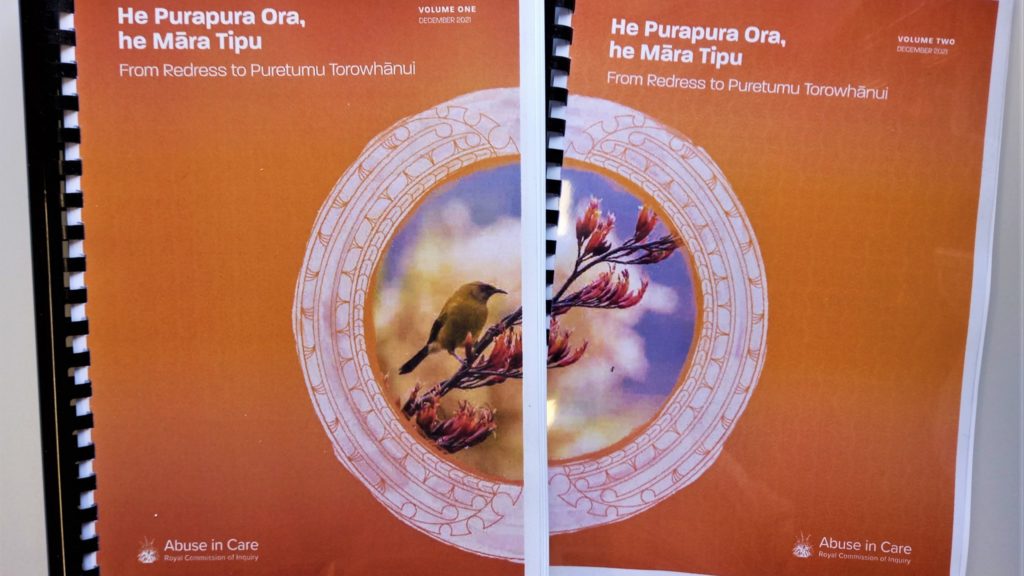On Wednesday, a commission in New Zealand singled out religious communities — and in particular, the Catholic Church — for failing to address or prevent abuse children and vulnerable adults in care facilities.
The Royal Commission of Inquiry into Abuse in Care spent six years holding hearings and investigating events from 1950 until the present day.
The final report said abuse was “unimaginable” in state and faith-run institutions, explaining at least 200,000 people have been abused in these care facilities over the decades.
Starting early in the year 2018 with a consultation process, the Inquiry was required to make various reports and provide a final report with findings and recommendations and presented the report to New Zealand’s Governor General on June 25, and then to Parliament on Wednesday.
“Abuse and neglect in care has had lifelong impacts on survivors. Many survivors died while they were in care or by suicide following care. For others, the impacts of abuse are ongoing and compounding, making everyday activities and choices challenging,” said Arrun Soma, an advisor of the commission, on July 24.
“Faith-based institutions had some unique factors that contributed to abuse and neglect in their care,” he said.
“The assumed moral authority and trustworthiness of clergy and religious leaders allowed abusers in faith-based institutions to perpetrate abuse and neglect with impunity. Religious beliefs were often used to justify the abuse and neglect, and to silence survivors. Hierarchical and opaque decision-making processes impeded scrutiny and making complaints,” Soma continued.
He said in faith-based care settings, abuse was treated as a religious transgression that required survivors to forgive, let go of anger and blame, and instead embrace those who had sinned against them; and abusers to merely repent.
“Many abusers were relocated and went on to continue abusing people in care,” he added.
The report said as many as 42 percent of those in faith-based care by all denominations were abused.
The Catholic Church in New Zealand itself said in a 2020 briefing to the commission that accusations had been made against 14 percent of its New Zealand clergy during the time covered by the inquiry.
The report also called for an investigation of Catholic priests from New Zealand and Australia sent to Papua New Guinea after suffering accusations of abuse.
In his comments on Wednesday, Soma said New Zealand’s care system is broken.
“Survivors want to see a total overhaul and fundamental change to ensure that this national catastrophe does not continue,” he said.
He also said faith-based institutions should “exit the business of care and in their pastoral care adopt national standards and transparent complaint processes.”
“In faith-based institutions, leaders providing pastoral care reflect the diversity of their communities and expression of that diversity is welcomed,” he added. “Faith community members are free to choose partners, seek appropriate health care and have no fear of being shunned.”
In a statement, the New Zealand Catholic Bishops Conference (NZCBC) said it has “received a copy of the Inquiry’s Final Report and will now read and review it carefully.”
“There is work for the government to do and work to be undertaken by many other people. We understand that within the community, some of us – including leaders in the Catholic Church – have a special role to play to ensure that the findings and recommendations of this significant Inquiry are not lost or confined to words in a report. We commit to that role,” said the statement signed by Bishop Steve Lowe, the president of the NZCBC.
“There are things that all of us can and must do to eliminate abuse of any kind in whatever context we live and work in. We hope this report and the work that flows from it will result in a better society and a safer environment for all people,” the bishops’ statement said.
“Over the past 30 years, the Catholic Church in Aotearoa New Zealand has made significant progress in responding to reports of abuse and safeguarding. We must continue to work to ensure that progress continues and that our church communities are places where people are safe,” the statement added.
In his comments on Wednesday, Soma said survivors of sexual abuse suffered immediate and lasting trauma.
“They have grown up with a distorted view of sexual intimacy and often have difficulty in maintaining healthy intimate relationships. Many have found it necessary to cut themselves off from this vital part of themselves altogether, leading to feelings of isolation and a profound impact on their emotional and psychological well-being,” he added.
Soma said everyone in New Zealand has a part to play in preventing abuse and neglect in care.
“Everybody needs the knowledge and tools to achieve this, so that the beliefs that contribute to harmful and discriminatory experiences in care can be eliminated, and abusers can be identified and stopped,” he said.

